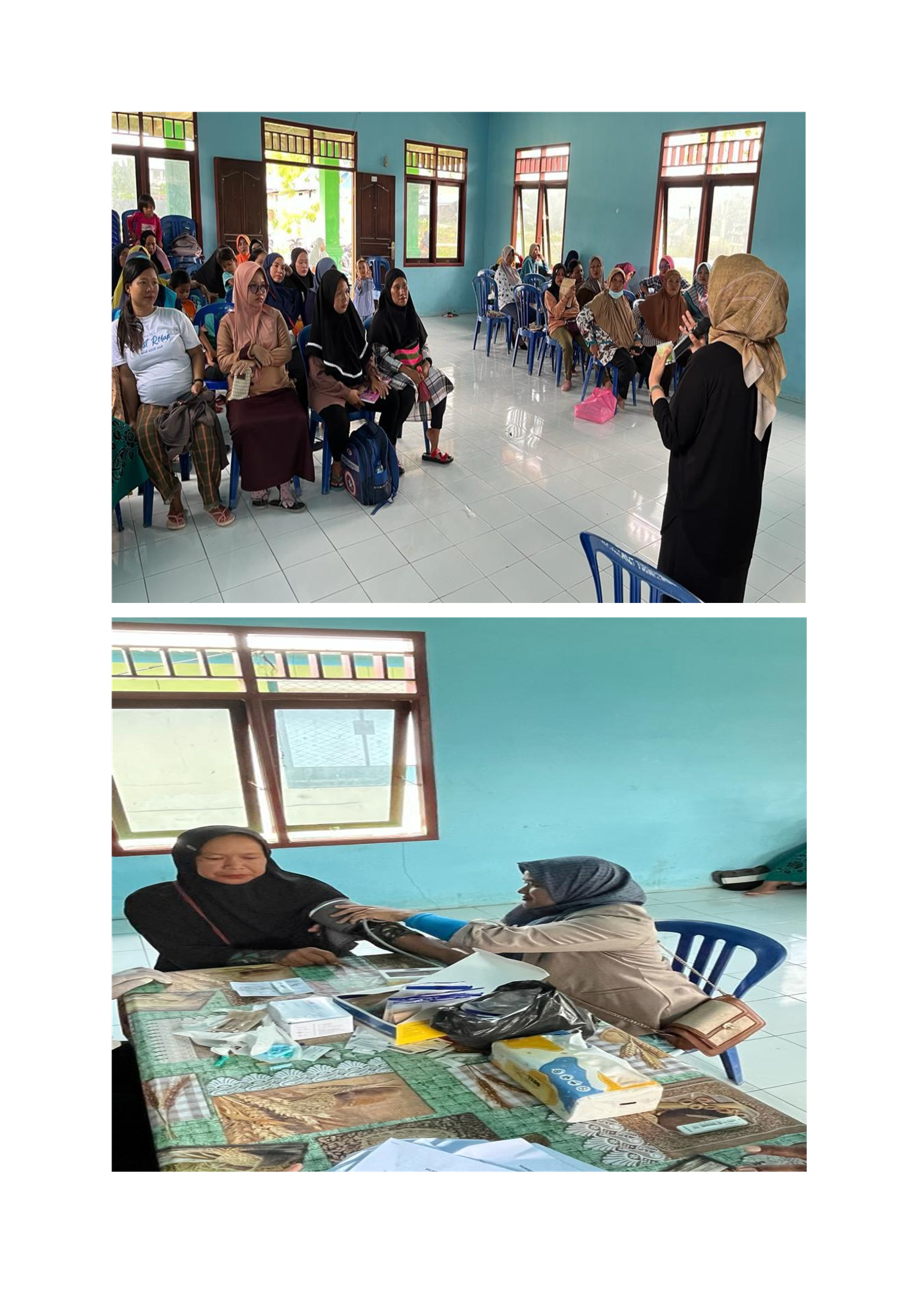EDUKASI PENGGUNAAN LILIN AROMATERAPI SEBAGAI PENGUSIR NYAMUK PADA IBU HAMIL DI KAMPUNG JAIFURI KEEROM
Abstract
Pregnant women with malaria in Jaifuri Village are quite high. One effort to repel mosquitoes to stop the transmission of malaria is by using aromatherapy candles using natural ingredients that are not widely known to the public. So far, people have used aromatherapy candles based on natural ingredients only for relaxation and to freshen the room. The aim of this activity is to provide education on the use of aromatherapy candles with natural ingredients, especially for pregnant women in Jaifuri Village, Arso 3 Health Center Working Area, Keerom Regency. The method used in this activity is education on the use of aromatherapy candles as an alternative mosquito repellent using videos and leaflets. Apart from that, pregnancy checks are carried out on pregnant women and blood pressure measurements are carried out followed by distribution of aromatherapy candle. The expected result is that knowledge about the use of aromatherapy candles in pregnant women increases, the results of pregnancy examinations can maintain the health of the mother and fetus. The activity was carried out 2 times in the form of activity implementation and activity evaluation. After 14 days of activity implementation. The number of respondents in this activity were 10 malaria cadres and 40 pregnant women. The pretest results showed that the level of knowledge was in the sufficient category for 30 respondents (60%). After conducting an evaluation in the form of a post test, the knowledge level results were in the good category (100%). The results of pregnancy tests on 40 pregnant women showed that the mother and fetus were in healthy condition. After 2 weeks of using aromatherapy candles, there were no complaints of adverse side effects in pregnant women.
References
Budiasih, K.S. and Si, M., (2011). Pemanfaatan Beberapa Tanaman yang Berpotensi Sebagai Bahan Anti Nyamuk. Universitas Negeri Yogyakarta. Vol 20.
Dinkes Papua. (2017). Profil Kesehatan Provinsi Papua Tahun 2016. Jayapura : Dinkes Provinsi Papua
Kemenkes RI (2016). Malaria, Infodatin Pusat Data dan Informasi. Jakarta : kemenkes RI.
Kemenkes RI. (2018). Laporan Hasil RIset Kesehatan Dasar (RISKESDAS) Tahun 2018. Jakarta: Kemenkes RI.
Kemenkes RI, (2018b). Peraturan Menteri Kesehatan Republik Indonesia Nomor 41 Tahun 2018 Tentang Pelaksanaan Deteksi Dini Dan Pemberian Obat Anti Malaria Oleh Kader Malaria Pada Daerah Dengan Situasi Khusus. Kementrian Kesehatan RI, Jakarta.
Kemenkes RI. (2019). Data dan Informasi Profil Kesehatan Indonesia 2018.
Mayasari, R., Sitorus, H., & Ambarita, L. (2020). DAMPAK PENYULUHAN TERHADAP PENINGKATAN PENGETAHUAN SIKAP DAN PERILAKU MASYARAKAT TENTANG MALARIA DI DESA SUKAJADI KABUPATEN OKU. Publikasi Penelitian Terapan Dan Kebijakan, 6(3). Diambil dari https://www.ejournal.sumselprov.go.id/pptk/article/view/241
Rusjidi, SR (2012). MALARIA PADA MASA KEHAMILAN. Majalah Kedokteran Andalas No.2. Vol.36. Juli-Desember 2012. 173-178.
Sari, M. A., Andeka, W., Linda, L., Ningsih, L., & Sumaryono, D. (2020). Pengaruh Promosi Kesehatan melalui Media Video terhadap Pengetahuan dan Sikap tentang Malaria (Doctoral dissertation, Poltekkes Kemenkes Bengkulu).
Setyowati E. A., (2015). Potensi Herba sebagai Pengendali Nyamuk. Purwokerto: Fakultas Biologi Universitas Jenderal Soedirman
Suryawan Aloysius dan Suparman Eddy, 2004. Malaria pada Kehamilan. JKM. Vol. 4, No1

Copyright (c) 2023 Politeknik Kesehatan Kementrian Kesehatan Jayapura

This work is licensed under a Creative Commons Attribution-ShareAlike 4.0 International License.















